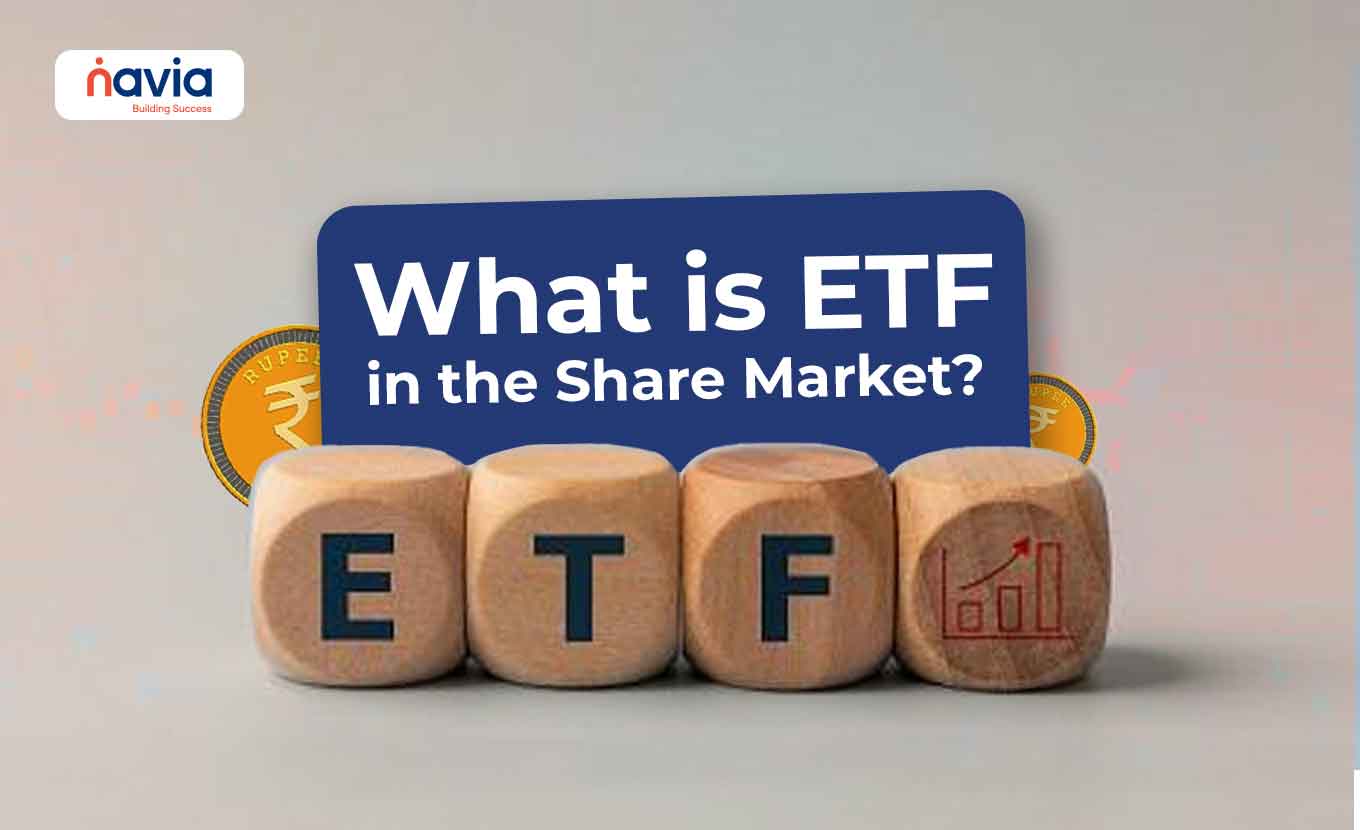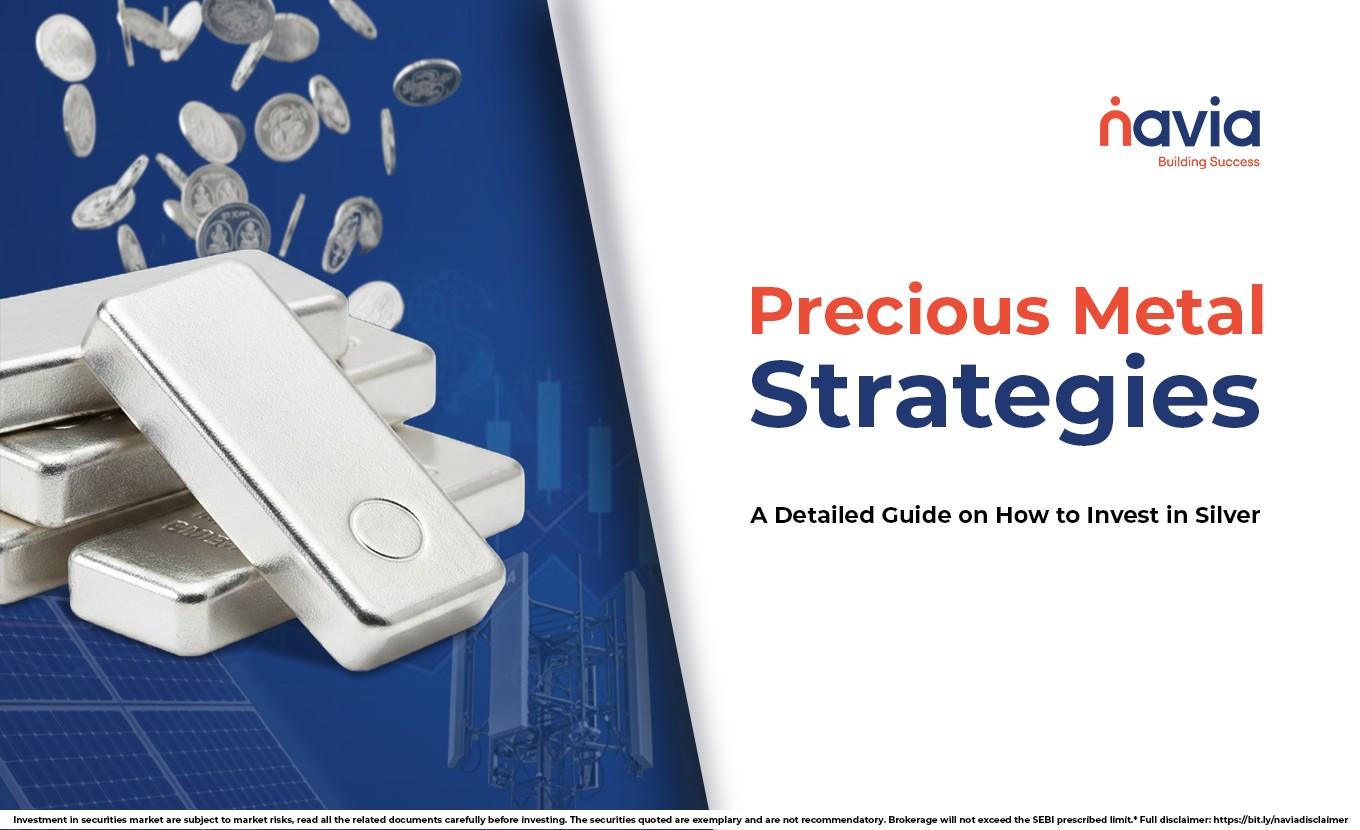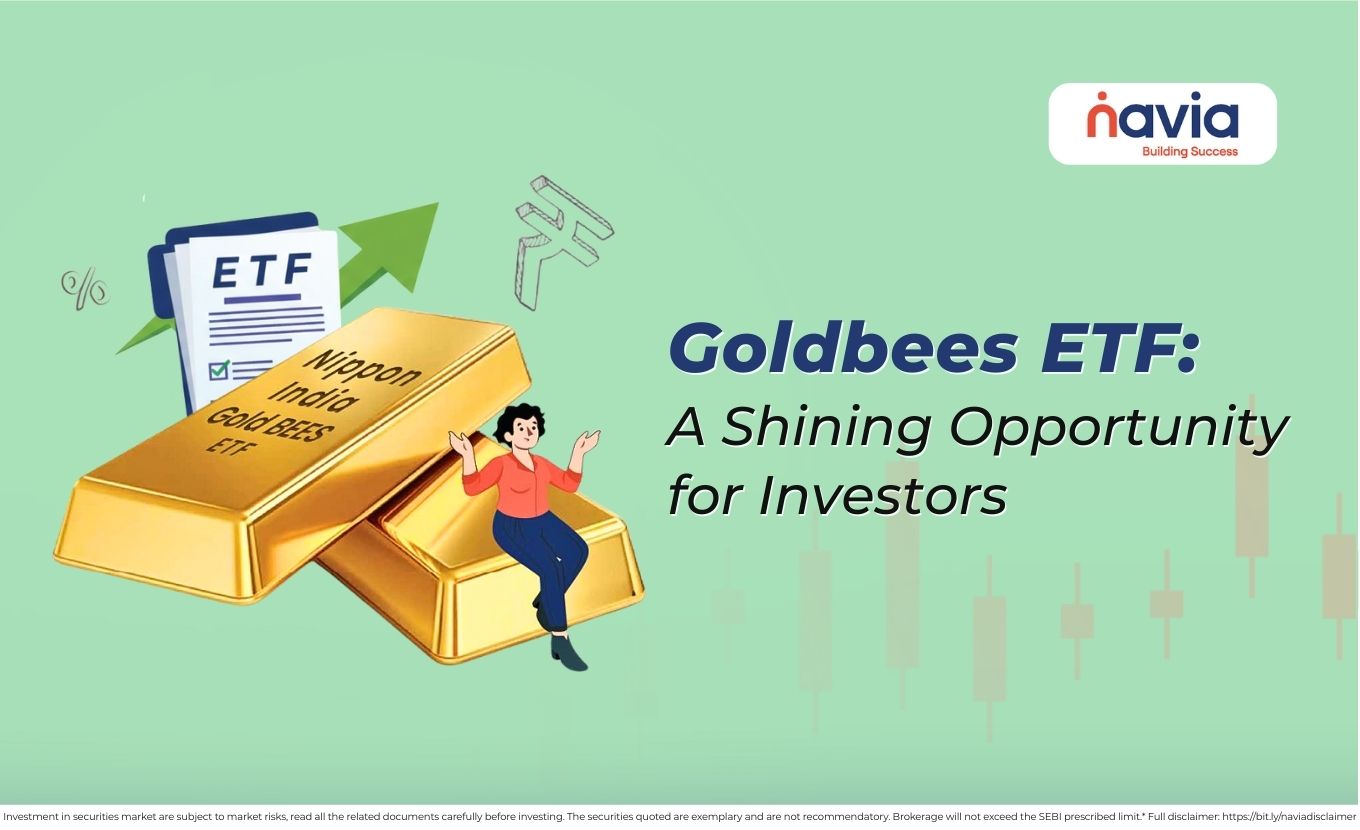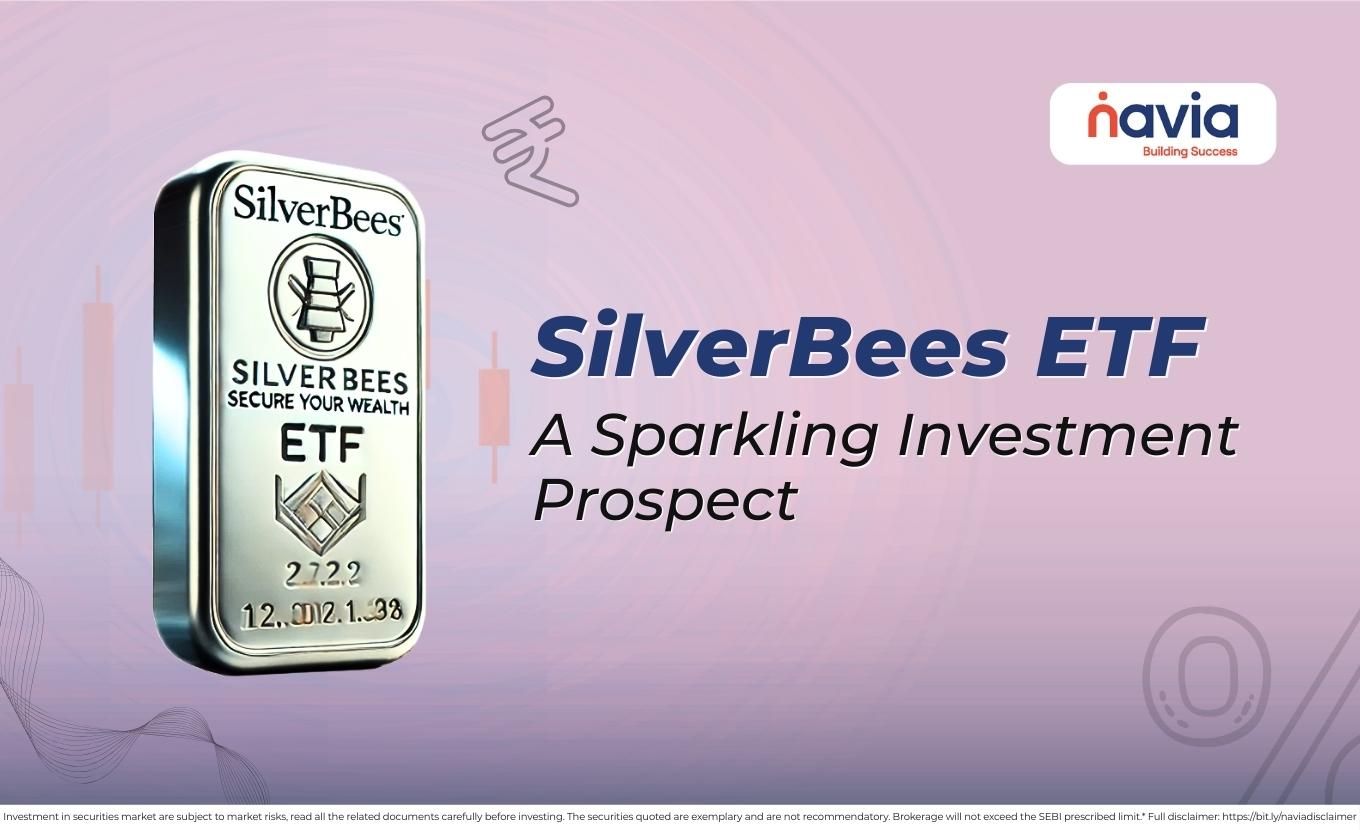What is ETF in the Share Market?

If you’re curious to know what are Exchange Traded Funds or what is ETF in the share market, you aren’t alone in the journey, we are here to educate you. ETF’s full form is an Exchange Traded Funds, which is a type of investment fund traded on the stock exchange. The funds hold the collection of assets that include stocks, bonds, and commodities and offer a simple way to diversify investors’ portfolios.
The Exchange Traded Funds share price will fluctuate according to the market demand. Curious to know about how it works, how to invest in ETFs, and how to buy exchange-traded funds? This blog will guide you to know about it!
What is an ETF?
An Exchange Traded Fund is a type of investment fund that holds assets like stocks, and commodities and is traded on stock exchanges. In simple words, ETFs are funds that track indexes such as CNX Nifty or BSE Sensex, etc. By choosing ETF you can invest in many securities at once in cheaper fees compared to other types of funds.
The traded price of an Exchange Traded Fund will change throughout the day, according to the price you can buy and sell on the stock exchange carefully. The trading value of ETF is based on the Net Asset Value (NAV) of the underlying stocks. And it offers higher liquidity with lower fees than other schemes, making it attractive for individual investors.
Types of Exchange-Traded Funds
The various types of Exchange Traded Funds are listed below;
| Types of ETF | Description |
| Equity ETFs | Invest in a basket of stocks tracking an index like Nifty 50 or Sensex. |
| Commodity ETFs | Track prices of physical commodities such as oil, silver, or agricultural goods. |
| Foreign Markets ETFs | Invest in international stocks, offering exposure to global economies outside the investor’s home country. |
| International ETFs | Provide exposure to global equities and international indices. |
| Leveraged ETFs | It is a high-risk fund that aims to deliver 2x or 3x the daily returns of an underlying index using financial derivatives. |
| Fixed Income ETFs | It invests in bonds or debt securities to provide stable and regular returns. |
| Style ETFs | These funds track stocks based on specific investment styles like growth, value, or momentum. |
| Inverse ETFs | To earn returns by moving in the opposite direction of a specific market index or asset. |
| Sectoral/Thematic ETFs | Focus on specific sectors (e.g., IT, banking) or investment themes like ESG. |
| Bond ETFs | That invests in a portfolio of bonds and trades on the stock exchange like a stock. |
How to Invest in ETFs (Exchange Traded Funds)
Here you can find the steps to invest in exchange-traded funds;
🔸 Step 1: Open a Demat & Trading Account
Choose a registered broker or app like Navia to get started investing in ETFs.
🔸 Step 2: Research
In this stage, compare ETFs based on type, performance, and expense ratios.
🔸 Step 3: Select ETF
Select an ETF that is suitable for you to lead your success.
🔸 Step 4: Placing Your Order
Use your trading platform to buy the exchange-traded funds at the current market price, just like a stock.
🔸 Step 5: Monitoring Investment
Trach ETF performance and rebalance your portfolio if needed.
Things to Consider Before Investing in ETFs
🠖 Ensure that the exchange-traded funds align with your financial goals and risk appetite.
🠖 Choose from equity, gold, sectoral, or international ETFs based on your strategy.
🠖 Check trading volume
🠖 If the expense ratio is lower, it means more of your money stays invested.
🠖 Smaller tracking error indicates better performance against the underlying index.
🠖 Fund size and AUM should be considered because larger ETFs offer more stability and lower costs.
🠖 Stocks and ETF prices fluctuate in market conditions.
🠖 Understand how gains from ETFs are taxed.

Pros and Cons of ETFs
Pros
● Lower expense ratio compared to mutual funds
● Traded in stocks, which allows intraday buying and selling
● One ETF can give exposure to a wide range of assets
● Holdings are disclosed daily
● Generally, more tax-efficient due to their structure
Cons
● Prices fluctuate with market movements
● Frequent buying/selling may incur brokerage and spread costs
● May not perfectly mirror the performance of the index
● Most ETFs are passively managed, offering no flexibility in down markets
Conclusion
ETFs full form is Exchange Traded Funds, are a smart and flexible way to invest in the world of the stock market. Whether you are a beginner or a seasoned investor, ETF is a cost-effective tool that will balance your portfolio in various asset classes. Make sure that you are taking steps with careful research and a clear goal. Getting informed about the rise of ETFs in India will help you make decisions wisely.
Navia is a partner for you to make the best financial decisions, and our expertise and knowledge will sprinkle success in your life!
Do You Find This Interesting?
Frequently Asked Questions
What is ETF and how does it work?
An ETF (Exchange Traded Fund) is a basket of securities that trades on the stock exchange like a share, allowing investors to gain diversified exposure to an index or asset class.
Is ETF a good investment?
Yes, ETFs are generally a good investment for many investors as they offer low costs, diversification, and easy access to a wide range of markets and sectors, making them ideal for long-term wealth building.
Which ETF is best in India?
There’s no “best” ETF in India because it depends on your investment goal. However, some of the top-performing and popular ETFs in 2025 include Nippon India ETF Junior BeES, SBI NIFTY NEXT 50 ETF, KOTAK NV 20 ETF, etc.
What is an example of an ETF?
An example of an ETF is the SBI ETF Nifty 50, which tracks the performance of the Nifty 50 index—India’s top 50 large-cap stocks. By investing in this ETF, you indirectly invest in companies like Reliance, HDFC Bank, Infosys, and TCS, all in one basket.
What is an ETF?
An ETF (Exchange Traded Fund) is a market-traded investment fund that holds a basket of assets like stocks, bonds, or commodities.
What are the costs included in investing in ETFs?
The main costs involved in investing in ETFs include expense ratio, brokerage charges, bid-ask spread, and taxes.
What is the difference between an ETF and an Index Fund?
An ETF trades like a stock on exchanges in real-time, while an index fund is bought at day-end NAV directly from the fund house.
DISCLAIMER: Investments in the securities market are subject to market risks, read all the related documents carefully before investing. The securities quoted are exemplary and are not recommendatory. Brokerage will not exceed the SEBI prescribed limit.






